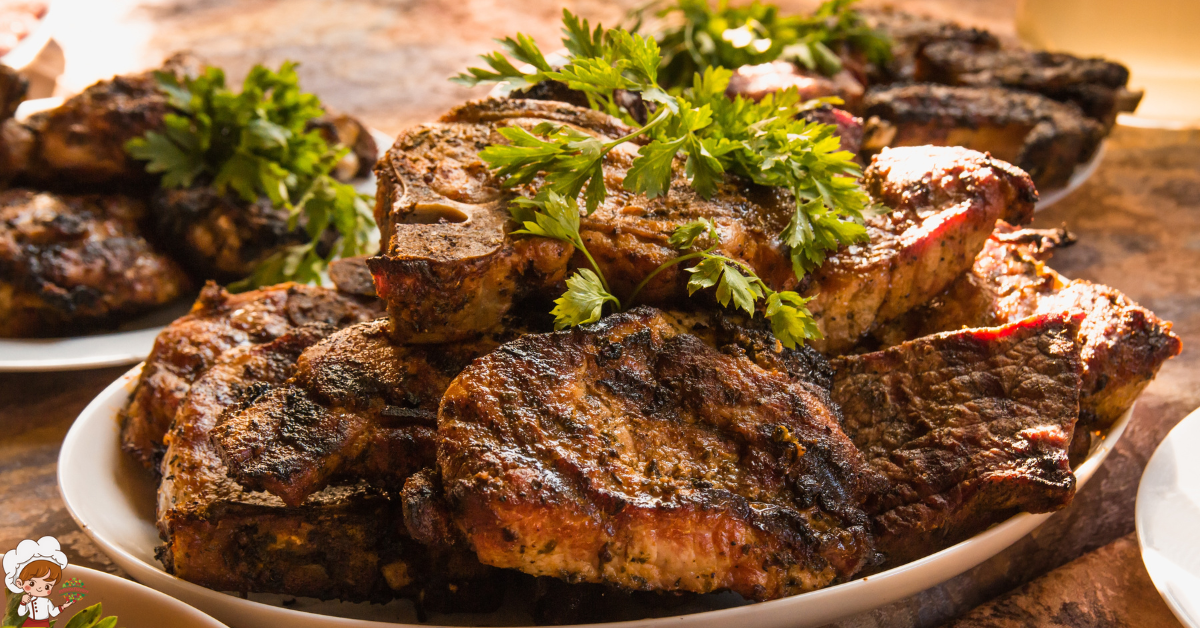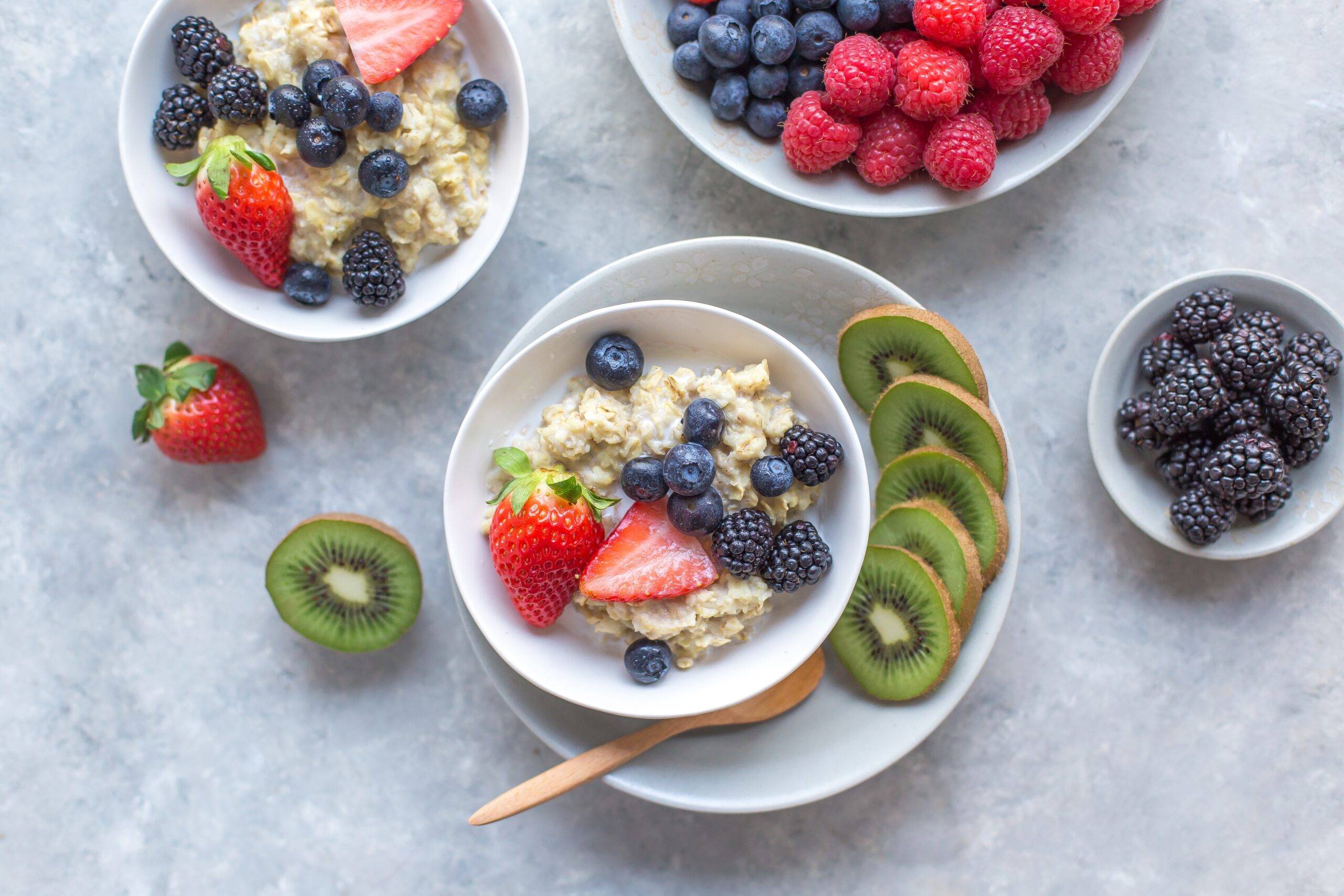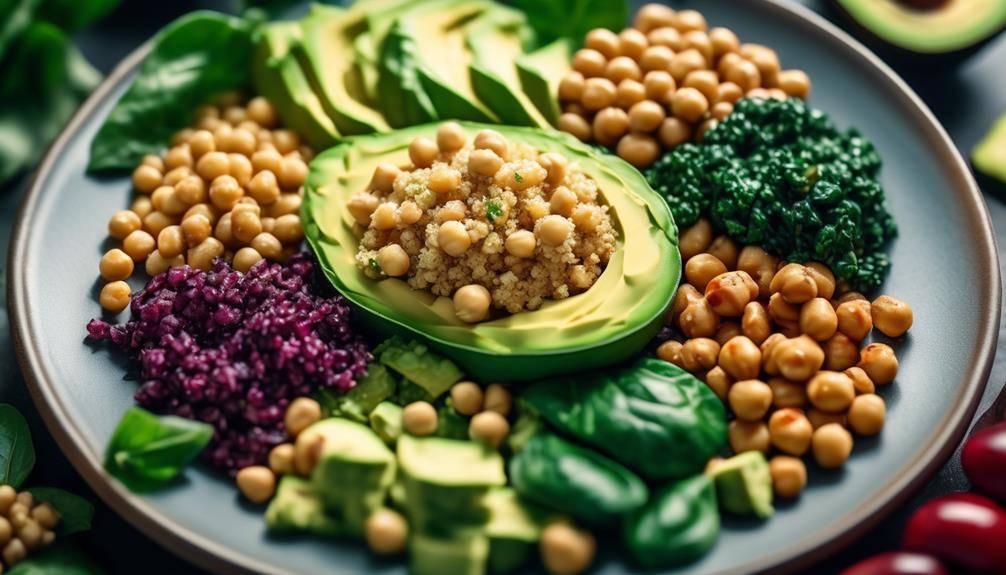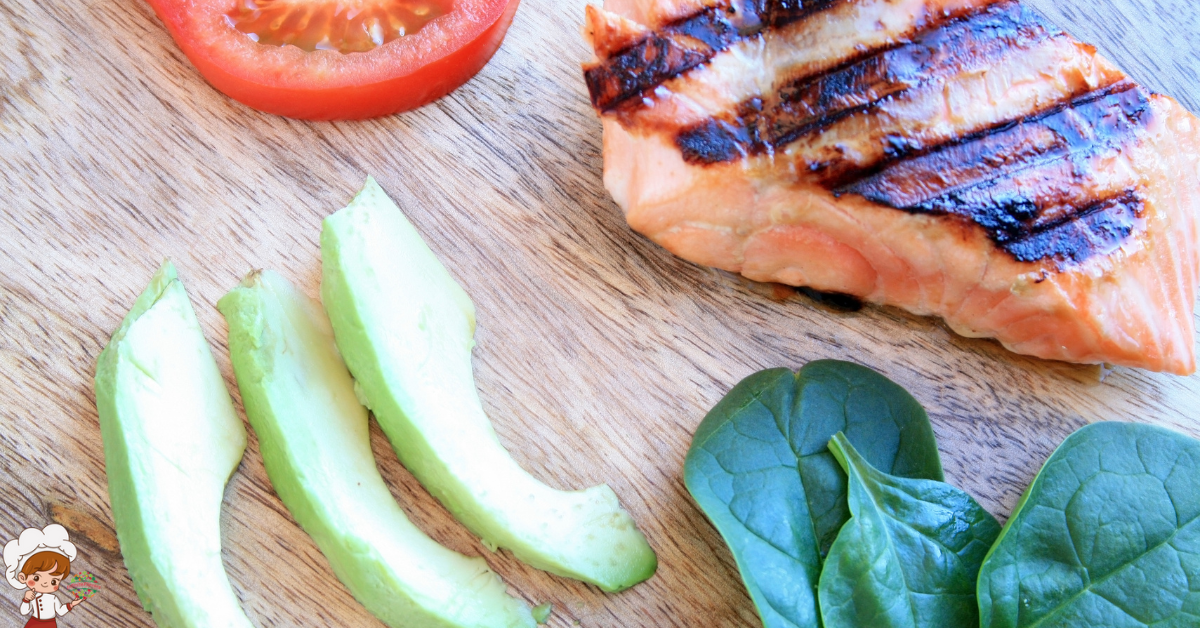The Great Advantages Of Grilling Over Frying

Grilling Over Frying; Are you tired of the same old fried food, dripping with oil and leaving you feeling heavy and guilty? Well, get ready to discover a cooking method that will revolutionize your culinary experience. Grilling, my friend, is not just a way to cook your food, it’s a game-changer. With numerous advantages that will make your taste buds dance and your waistline thank you, grilling takes your meals to a whole new level. But that’s not all…
Grilling Over Frying; Reduced Fat Intake
Grilling offers a substantial advantage over frying as it promotes reduced fat intake. When you choose to grill your food, you are opting for a cooking method that helps lower cholesterol levels and improve digestion.
When food is grilled, excess fat drips off the meat due to the direct heat and open flames. This reduces the overall fat content of the food, making it a healthier option compared to frying, where the food is cooked in oil or fat. By grilling, you can enjoy your favorite meats, such as chicken, steak, or fish, without the added fat and calories that frying introduces.
Lowering your fat intake through grilling has several benefits for your health. Firstly, it can help lower cholesterol levels. Consuming excessive amounts of saturated and trans fats, commonly found in fried foods, can raise your cholesterol levels and increase the risk of heart disease. Grilling allows you to enjoy flavorful meals while keeping your cholesterol in check.
Additionally, grilling promotes improved digestion. Fatty foods, like those that have been fried, can be harder for your body to digest, leading to discomfort and indigestion. By choosing to grill instead, you are opting for a cooking method that retains the natural juices of the food, making it easier for your body to break down and absorb nutrients.
Grilling Over Frying; Retained Nutrients
When it comes to cooking methods, grilling offers a distinct advantage over frying in terms of retaining nutrients. The high heat of grilling helps to preserve the vitamins and minerals present in foods, ensuring that they are not lost during the cooking process. This makes grilling a healthier option for those who are conscious about their nutrient intake.
Nutrient Preservation
One of the advantages of grilling over frying is the preservation of nutrients, ensuring that essential vitamins and minerals are retained in the cooked food. When food is grilled, it undergoes a cooking process that allows for the preservation of vitamins. The high temperatures used in grilling help to retain water-soluble vitamins, such as vitamin C and B vitamins, which are often lost during frying due to the heat and oil.
Additionally, grilling helps to preserve the fat-soluble vitamins, such as vitamins A, D, E, and K, which are important for various bodily functions. Nutrient retention is also enhanced through grilling, as the cooking method does not require excessive oil, reducing the risk of losing nutrients in the oil. Therefore, grilling is an excellent choice for those looking to preserve the vitamins and minerals in their cooked food.
Healthier Cooking Method
To maintain the maximum nutritional value in your cooked food, it is important to choose a cooking method that retains the essential vitamins and minerals. Grilling, as a healthier cooking method, excels in this aspect. When food is grilled, it is exposed to high heat for a shorter period of time compared to frying. This shorter cooking time helps to preserve the nutrients in the food.
Essential vitamins such as vitamin C and B vitamins, which are heat-sensitive, are better retained through grilling. By retaining these vital nutrients, grilling promotes long-term health benefits and increased overall well-being. Consuming grilled foods regularly can contribute to a balanced diet and provide the necessary nutrients for optimal bodily functions. So, by choosing grilling over frying, you are making a healthier choice that can positively impact your health in the long run.
Grilling Over Frying; Enhanced Flavors
Grilling imparts a rich and smoky flavor to food, making it a preferred method for enhancing flavors over frying. When it comes to grilling, the techniques used can greatly influence the taste and aroma of the food. By properly controlling the heat and using different grilling methods, you can achieve a range of flavors that are simply not possible with frying.
One of the key factors that contribute to the enhanced flavors of grilled food is the use of marinades. Marinades are mixtures of herbs, spices, oils, acids, and other flavorings that are used to marinate the food before grilling. The marinade helps to infuse the food with a variety of flavors, resulting in a more complex and delicious taste. Furthermore, the marinade also helps to tenderize the meat, making it juicier and more flavorful.
Grilling also allows for the natural flavors of the food to shine through. Unlike frying, which can often mask the natural taste of the ingredients, grilling enhances the inherent flavors of the food. The high heat of the grill helps to caramelize the sugars in the food, creating a delicious charred crust that adds depth and complexity to the flavor profile.
In addition, the smoke produced during grilling adds a distinct smoky flavor to the food. This smokiness can be further enhanced by using different types of wood chips or charcoal. Each type of wood imparts its own unique flavor, allowing you to experiment and customize the taste of your grilled dishes.
Grilling Over Frying; Healthier Cooking Method
In terms of health benefits, grilling offers a distinct advantage over frying due to its cooking method. When it comes to weight management, grilling is a healthier option. Frying often involves the use of excessive oil, leading to higher calorie intake and potential weight gain. In contrast, grilling requires little to no oil, allowing you to enjoy flavorful and nutritious meals without the added calories.
Furthermore, grilling can significantly increase your antioxidant intake. Antioxidants are compounds that help protect our bodies from damage caused by harmful molecules called free radicals. When food is grilled, it retains more of its natural antioxidants compared to frying. This is because grilling helps to preserve the antioxidants present in the food, while frying can cause them to degrade due to the high heat and prolonged cooking time.
Research has shown that consuming a diet rich in antioxidants can have numerous health benefits, including reducing the risk of chronic diseases such as heart disease, cancer, and diabetes. By choosing grilling as your preferred cooking method, you can increase your antioxidant intake and support your overall health and well-being.
It is important to note that while grilling is generally considered a healthier cooking method, it is essential to practice safe grilling techniques to minimize the formation of potentially harmful compounds, such as polycyclic aromatic hydrocarbons (PAHs) and heterocyclic amines (HCAs). These compounds can form when meat is cooked at high temperatures, leading to potential health risks. To reduce the formation of PAHs and HCAs, marinating meat before grilling, using lean cuts of meat, and avoiding excessive charring can be beneficial.
Less Oil Consumption With Grilling Over Frying
By reducing the need for excessive oil, grilling allows for a healthier and more nutritious cooking method. When you grill your food, you significantly lower your calorie intake compared to frying. Frying requires submerging the food in oil, which adds unnecessary calories and unhealthy fats. In contrast, grilling allows the excess fat to drip off, resulting in a lower overall calorie content.
Grilling also offers improved taste compared to frying. When food is grilled, it develops a smoky and charred flavor that enhances the natural taste of the ingredients. The high heat of the grill creates a caramelization effect on the surface of the food, resulting in a crispy exterior and a succulent interior. This adds depth and complexity to the flavors, making your meals more enjoyable.
Additionally, grilling requires minimal oil compared to frying. While a small amount of oil may be used to prevent sticking, it is significantly less than what is required for frying. This reduction in oil consumption not only contributes to a healthier diet but also minimizes the risk of cardiovascular diseases and weight gain associated with excessive oil intake.
Moreover, grilling helps to retain the natural nutrients present in the food. Frying can lead to the loss of vitamins and minerals due to the high temperatures and extended cooking time. On the other hand, grilling allows the food to cook quickly, preserving its nutritional value. This means that you can enjoy a delicious meal while still obtaining the essential nutrients your body needs.
Reduced Risk of Heart Diseases When You Choose Grilling Over Frying
Grilling your food instead of frying it offers several advantages when it comes to reducing the risk of heart diseases. Firstly, grilling allows excess fat to drip off the food, resulting in lower fat intake compared to frying. Secondly, grilling helps retain the natural flavors and juices of the food, making it a healthier and more enjoyable option. Lastly, by reducing the consumption of fried foods, you can improve your heart health and lower the risk of developing cardiovascular diseases.
Heart Health Benefits
When incorporating grilling into your cooking routine, you can enjoy the heart health benefits of reduced risk of heart diseases. Grilling is a cooking method that involves cooking food over direct heat, usually on a grill or barbecue. It is often considered a healthier alternative to frying, as it allows excess fat to drip away from the food, resulting in lower calorie content.
Additionally, grilling helps to retain more nutrients in the food compared to frying, as it involves shorter cooking times and less exposure to high temperatures. This is particularly beneficial for heart health, as heart healthy recipes that involve grilling can help reduce the intake of unhealthy fats and cholesterol, which are known risk factors for heart diseases. By choosing grilling over frying, you can make a positive impact on your heart health.
Lower Fat Intake When You Choose Grilling Over Frying
The reduction in fat intake achieved through grilling not only contributes to the heart health benefits discussed previously but also plays a crucial role in lowering the risk of heart diseases. Grilling is a cooking method that allows excess fat to drip off the food, resulting in a significantly lower fat content compared to frying. When you grill your food, you can enjoy a delicious meal while reducing your intake of unhealthy fats.
By reducing your fat consumption, you can lower your risk of heart diseases such as high cholesterol, hypertension, and cardiovascular diseases. This is because excessive fat intake can lead to the buildup of plaque in your arteries, which can restrict blood flow and increase the risk of heart-related problems. Therefore, incorporating grilling into your cooking routine can provide numerous health benefits and promote a healthier heart.
Flavorful and Juicy
By grilling your food, you can achieve a flavorful and juicy result that not only enhances your dining experience but also reduces the risk of heart diseases. Grilling is a cooking method that uses direct heat from an open flame or hot coals to cook food. The high heat of grilling helps to seal in the natural juices of the food, resulting in a flavorful and juicy end product.
The Maillard reaction, which occurs when proteins and sugars in the food react under high heat, further enhances the flavor and adds a delicious caramelized crust to the food. Additionally, grilling allows excess fats to drip off the food, reducing the overall fat content and minimizing the risk of heart diseases. So, next time you’re looking to enjoy a delicious and healthy meal, consider flavorful and juicy grilling.
Versatility in Cooking Options
Grilling offers a wide range of cooking options, allowing you to experiment with different flavors and textures. The versatility of grilling makes it an excellent choice for those looking to explore various cooking techniques and recipe options. Whether you prefer to sear a juicy steak, grill vegetables to perfection, or even smoke meats for a smoky flavor, grilling provides endless possibilities.
One of the great advantages of grilling is its ability to enhance the natural flavors of the food. The direct heat from the grill produces a caramelization process known as the Maillard reaction, which creates a rich and savory taste. This technique is particularly effective for meats, as it helps to preserve their tenderness and juiciness. Additionally, grilling allows for the incorporation of marinades and rubs, which can further enhance the flavor profile of your dishes.
Furthermore, grilling provides an opportunity to experiment with different textures. The high heat of the grill can create a satisfying charred exterior while maintaining a succulent interior. This contrast in textures adds depth to your meals and can elevate the overall dining experience. Whether you prefer a crispy crust on a pizza or a perfectly grilled piece of fish with a tender center, grilling allows you to achieve the desired texture easily.
In terms of recipe options, grilling opens up a world of possibilities. From traditional barbecue favorites like burgers and hot dogs to more adventurous options like grilled seafood or even grilled fruits for a unique dessert, the options are endless. Grilling also provides a healthier alternative to frying, as it allows excess fat to drip away from the food.
Reduced Formation of Harmful Compounds with Grilling Over Frying
When grilling, you can enjoy the benefits of reduced formation of harmful compounds compared to other cooking methods. Grilling is known for its ability to add a smoky flavor to food while keeping it tender and juicy. But did you know that grilling also has advantages when it comes to reducing the formation of harmful compounds, such as carcinogens?
When food is grilled, the high heat causes the fat in the meat to drip off, reducing the amount of fat that is absorbed into the food. This is important because when fat comes into contact with the flames or hot coals, it can produce harmful compounds called polycyclic aromatic hydrocarbons (PAHs) and heterocyclic amines (HCAs). These compounds have been linked to an increased risk of cancer. By reducing the fat content in grilled food, you can significantly reduce the formation of these carcinogens.
Another advantage of grilling is that it helps improve the texture of the food. When food is fried, it tends to become greasy and heavy. On the other hand, grilling allows the excess fat to drip off, resulting in a lighter and healthier meal. The high heat of the grill also helps to caramelize the natural sugars in the food, creating a delicious crust and enhancing the overall flavor.
Frequently Asked Questions
Can Grilling Be a Suitable Cooking Method for Vegetarians or Vegans?
Grilling can be a suitable cooking method for vegetarians or vegans. It offers versatility and allows for the preparation of a variety of plant-based foods. Plus, it is a healthier option compared to frying.
Is It Possible to Grill Frozen Food Directly Without Thawing It First?
Grilling frozen food can be possible, but it is recommended to thaw it first for even cooking. When comparing grilling for flavor to frying for convenience, grilling adds a smoky taste while frying provides a crispy texture.
Can Grilling Lead to the Formation of Carcinogens or Harmful Compounds?
Grilling can potentially lead to the formation of carcinogens or harmful compounds. It is important to practice safe grilling techniques to minimize the risk. Regularly clean your grill, avoid excessive charring of food, and marinate meats to reduce the formation of harmful substances.
What Are Some Alternative Cooking Methods That Can Provide Similar Health Benefits to Grilling?
Some alternative cooking methods that can provide similar health benefits to grilling include baking, steaming, and broiling. These methods help retain nutrients, reduce the need for added fats, and promote a healthier cooking process.
Are There Any Specific Types of Food That Are Not Recommended for Grilling Due to Their Texture or Composition?
Grilling vs Frying: Which is healthier? When it comes to texture and composition, certain foods may not be recommended for grilling. However, grilling offers distinct taste and flavor advantages over frying.
Conclusion
In conclusion, grilling offers numerous advantages over frying. It allows for reduced fat intake, retained nutrients, and enhanced flavors in the food. Furthermore, grilling is a healthier cooking method that requires less oil consumption and reduces the risk of heart diseases. The versatility of grilling options also provides a wide range of cooking techniques. Lastly, grilling helps in reducing the formation of harmful compounds, making it a preferable choice for those seeking a healthier cooking alternative.








